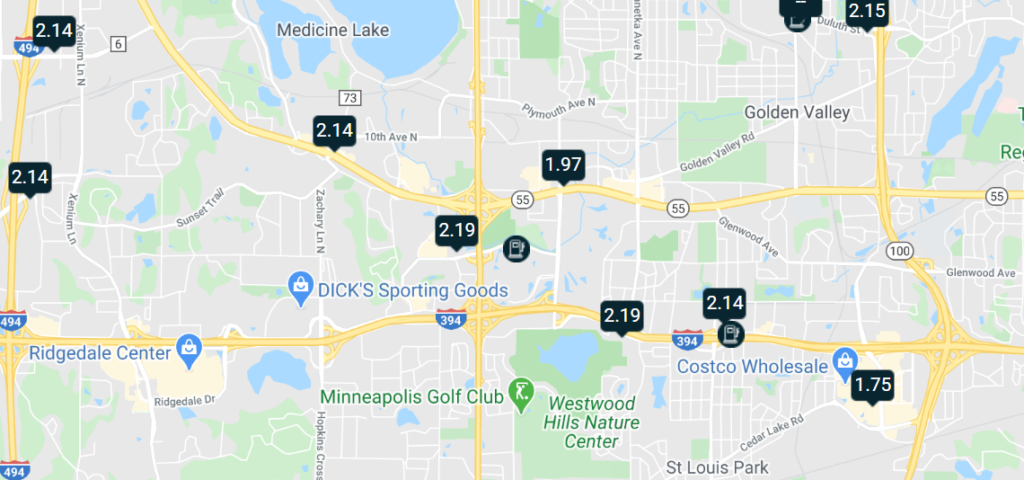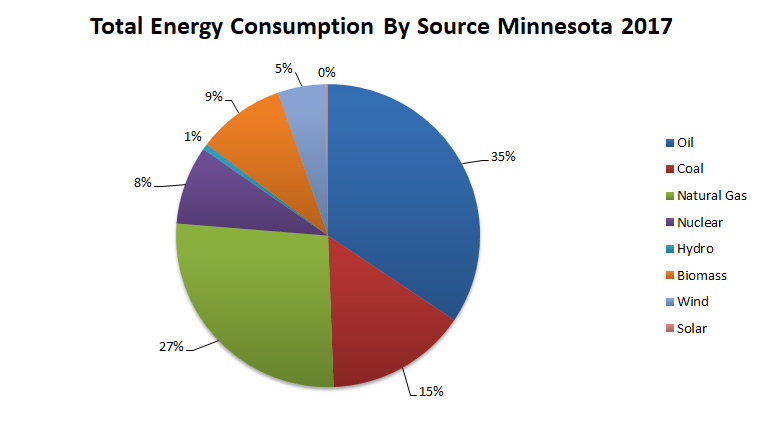What Would a Joe Biden Fracking Ban Look Like? Part Three: A $3,000 Pain at the Pump for Minnesota Families
During the Democrat debate on Sunday, March 15, 2020, between Vermont Senator Bernie Sanders and former Vice-President Joe Biden, Vice-President Biden stated that he would allow “no new fracking.” However, banning “new fracking” would have incredibly bad consequences for the whole country because it would greatly increase the cost of gasoline, causing a big pain at the pump for Minnesota families. This article is the third installment in this series.
Higher Costs for Gasoline
According to a 2016 study conducted by the U.S. Chamber of Commerce entitled “What if Hydraulic Fracturing Was Banned?” a national fracking ban would cause gasoline prices to nearly double from 2016 prices. The study didn’t spell out exactly what the cost of gas would be as a result, but doubling the cost of gasoline from June 2016 gives us a cost of about $4.75 per gallon, which would more than double current prices. Gas prices at the Holiday store near American Experiment’s offices were $1.97 for regular gasoline on Wednesday.

Doubling the cost of gasoline would be very bad news for Minnesota because oil accounted for 35 percent of Minnesota’s energy use in 2017, making it the largest source of energy in the state, as you can see in the pie chart below that was made using data from the U.S. Energy Information Administration. A fracking ban would essentially act as an enormous tax on energy.

The Impact of a Fracking Ban on Minnesota’s Economy
Because oil is the single-largest source of energy used in Minnesota, doubling the cost of gasoline would have large negative consequences for Minnesota families and businesses. The table below uses data from EIA. According to this data, Minnesota used about 293 trillion British thermal units (Btus) of gasoline in 2017. Each gallon of gasoline contains about 114,000 Btus, meaning Minnesota used about 2.5 billion gallons of gasoline in 2017. Dividing by the number of households in the state, we can determine how much the average household in Minnesota spends on gasoline in a year.
Looking at the numbers, a fracking ban would cost Minnesotans dearly. If we assume gas prices are $1.97 per gallon, which is very low, then we can see that the average Minnesota family would pay nearly $3,300 more every year for gasoline, and that the state as a whole would spend an additional $7.1 billion.

Using a higher, and perhaps more sustainable, cost for gasoline changes the picture a little. A cost of $2.20 per gallon of gas means the average Minnesota household would spend approximately $3,000 more on gas every year if fracking were banned. This example is also illustrative of the impact of Governor Walz’s proposed 20 cent per gallon gas tax hike. Such an increase would cost the average Minnesota household about $300 per year.

This is a huge sum of money for anyone, but low income households would be hit hardest. For example, a wage earner earning $15, the eventual minimum wage for Minneapolis, would need to work 200 hours, or five extra weeks, to pay for higher gasoline prices. This is why any policy that increases energy costs, whether it is gasoline, natural gas, or electricity, has such regressive impacts.
Rising gasoline costs would also be a jobs killer, because it would reduce the amount of money all Minnesotans have to spend on other areas of the economy. Our report, Doubling Down on Failure, found that a 50 percent renewable energy mandate would reduce Minnesota’s gross domestic product by about $3 billion and destroy nearly 21,000 jobs. Given the fact that a fracking ban would force Minnesotans to spend an additional $6.5 billion on gasoline, it’s reasonable to assume 42,000 jobs would be lost as a result of a ban on affordable energy.
Conclusion
Many Minnesotans don’t fully appreciate the enormous cost savings that they have enjoyed over the past several years thanks to hydraulic fracturing, but they would understand them in a hurry if the practice were suddenly banned. People probably understand the impact of rising gasoline prices better than any other commodity, but a fracking ban would also make it much expensive to heat their homes in winter, which is what I will discuss tomorrow.